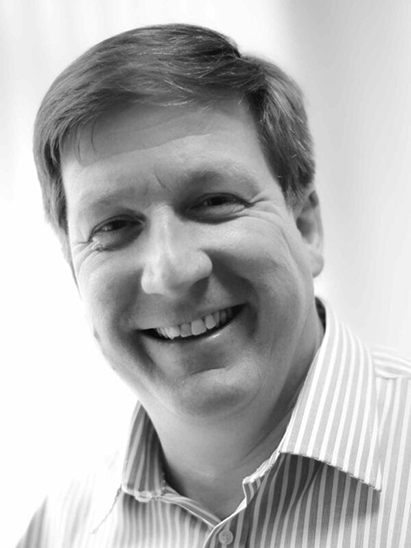As we move into 2025 and the traditional season of resolutions and goal setting for the next 12 months, perhaps we should allow a little more time for what Celtic culture called ‘dreaming’.
As part of our Friendly Advice : ) series,we’d like to welcome Graham Stonage, an accredited coach and mentor to people of all ages in the business and technology sectors seeking to build their career ‘stories’.
Graham has plenty of advice to share, and something of a philosophical view on what we could and should regard as ‘success’. Thanks for taking the time Graham.
The Celtic calendar

The pre-Christian Celtic calendar actually denotes this period as dreaming time. First we dream, then we begin to form structure around those dreams for the year to come.
From the cosy warmth of our chosen hibernation lairs, just letting ourselves dream a little. My mind drifts back to this time two years ago when I was fortunate to be able to allow myself to recognise that actually, for me, a change was needed, to step away from the front-line of commercial reality and to focus on my real passion – helping people. Has it worked? am I happier? Was it a “success”?
“This year in my dreaming phase, I have dwelt for a while on the thought which has then led me to wider musings on the concept of “success” and what it means, not just to me personally, but in the working lives and practices of my clients”.

SMART objectives
It is probably undisputable to suggest that all of us have a different perception of what success is, what it looks and feels like and how it might be measured. In many cases though, our definition of success is synonymous with goalsetting, establishing SMART objectives, having a ‘3-year, 5-year, 10-year plan’ – all of which can be incredibly useful in setting a platform. Does ticking each one off constitute being a success? Were they lowballed to ensure achievement, were they all consuming?
Does the absolute focus on achievement of a goal belittle the ‘success’ as it is reported it did for Jonny Wilkinson who, as his epic world-cup winning drop goal was sailing through the posts is said not to have experienced the euphoria of succeeding, more an anti-climax mixed with relief that the burden of the focus was gone. Only later after retirement has the meaning of that achievement come to feel like success.

From the cradle to the rocking chair
From my coaching experience looking backwards to milestones reached and goals achieved from an imaginary vantage point at some time in the future can be illuminating in defining what our success might look like for us as individuals. Many of my clients will recall being asked to project forward to a future point when all the achievements of their career (both past and future) can be considered in the whole – the image of sitting in a rocking chair by the fire, looking back over life “connecting the dots” and contemplating “was I successful?”
This is not always an easy journey as for many the initial answer will be the same as their goals in life, although further probing into some simple ideas like “Where is your rocking chair?” ; “Is anybody else there?” ; “What feelings are you experiencing” whilst often taking longer to unravel, can give clues to the inner motivation of the client – to themselves rather than the coach. Critically, being able to articulate what it might feel like to have been a “success” and how that manifests itself provides a lot more clarity around the goals that are set in the present and the direction of travel that needs to be followed.
Connecting the dots
Steve Jobs famously said, “You can’t connect the dots looking forward, you can only connect them looking backward”. A perspective that challenges the traditional concept of planning your life and career and defining who and what you will be and in no small measure if you are to be successful, or define your career as a success.
This approach may seem a little bit metaphysical and potentially drifting into the realms of personal counselling for some, although I would argue that personal success, however much it differs, is intertwined with business or ‘workplace’ success. The one undeniably contributes to the other. Having this “future retrospective” can therefore provide some interesting and sometimes surprising insight into how to evaluate current actions and interactions and a renewed framework for current plans.
Once established, the background of retrospective evaluation of success then facilitates a more straightforward thinking process around the day-to-day operation along the lines of “Who do I want/need to work with or for in order to put myself in the best position to be able to look back in the future and say I have been a success?” ; “What aspects of my working life, personal time, relationships, third party perspectives are the most important for me to work on and how am I going to do that?” ; “How am I going to measure progress?”

Existential clarity
In practical terms taking this approach often leads to a re-evaluation of the work (or type of work) that an individual client embarks on and a thorough examination of what they are good at, what they enjoy and importantly what is going to lead them to the success that they have envisaged being able to say they have achieved.
This then extends to a critical evaluation of who their customer is, how they conduct business with those customers, how they attract the ‘right type’ of customer in the first place [in this context ‘customer’ is an all-embracing term that includes co-workers in a larger organisation where relationship management is a fundamental part of building a ‘successful’ career]. Clarity on what exists now and what needs to be done to move towards that retrospective future feeling of having been a success is a significant advantage to a coachee who is focused on self-development and becoming a ‘success’.
The absolute measures of success differ from person to person and can be as varied as the individual clients – be they material in the conventional but esoteric ‘trappings of success’ itself a phrase in itself that means different things to different people or more intangible like ‘happiness and contentment’. In the typically simplistic manner for which he is renowned, the Brazilian lyricist and novelist Paulo Coelho defines success as “…being able to go to bed each night with your soul at peace.”
Your journey, your story
The ultimate definition is and always will be the clients to determine. The coach’s role is not to pre-determine for a client what ‘success’ is or how to get there, it is to help the client to ask themselves the questions they need to answer in order to reach their own perspective – and to keep doing so. Sometimes the coach can rely on personal experiences and provide examples to support this journey for the client and this sidestep into mentorship can be a valuable tool in helping the client to establish their own view.
In my practice of coaching and mentoring the focus on the client’s view of the world is paramount as ultimately that will be the determinant of what success actually is, but it can be an incredible journey to get there!

And, in case you are wondering, yes, my future self is telling me that the transition to coaching has been successful and is wanting the current me to continue to offer that coaching support to those that feel they need it!
About Graham
With a significant level of experience across all aspects of general management, specifically commercial, within the food & drink industry and across all sectors, many categories & sizes of business, I am focussed on specific short term projects and adding value as a coach and mentor.

Website
- diversity-talent.co.uk (Company)